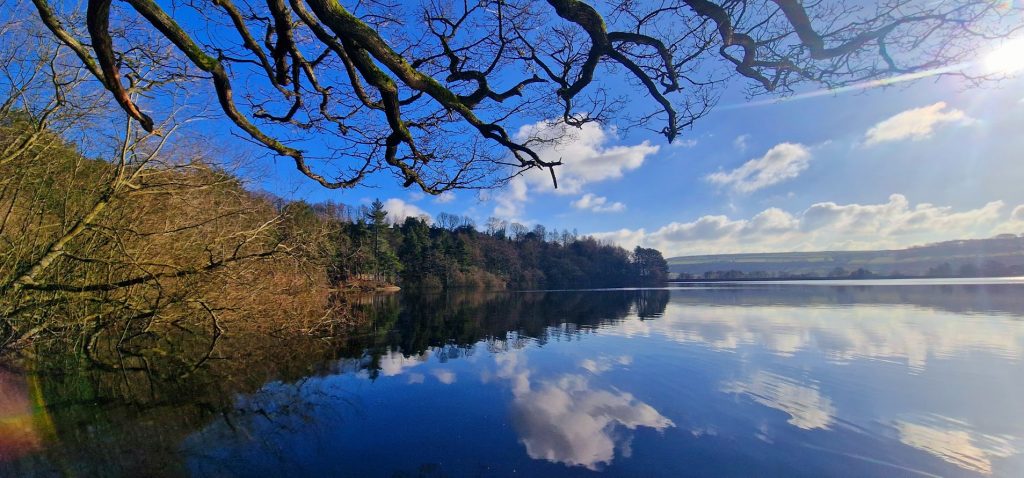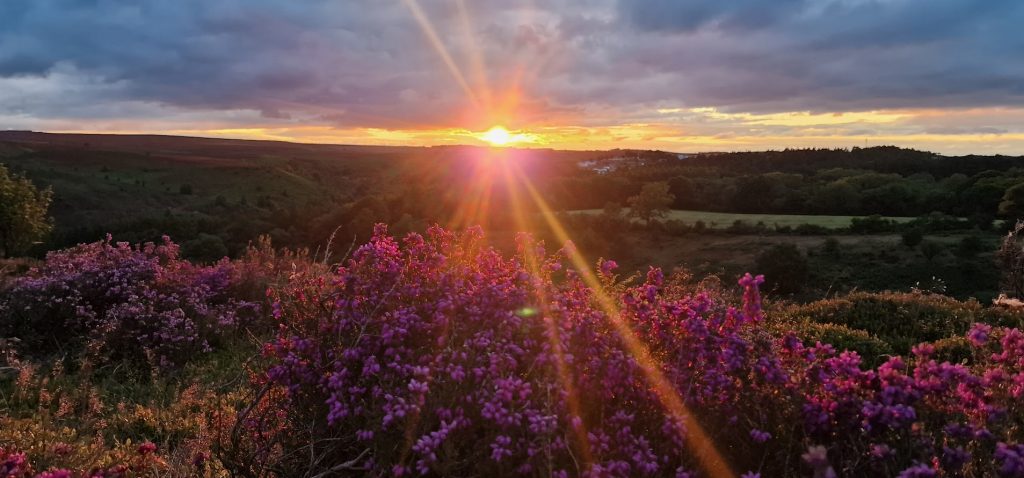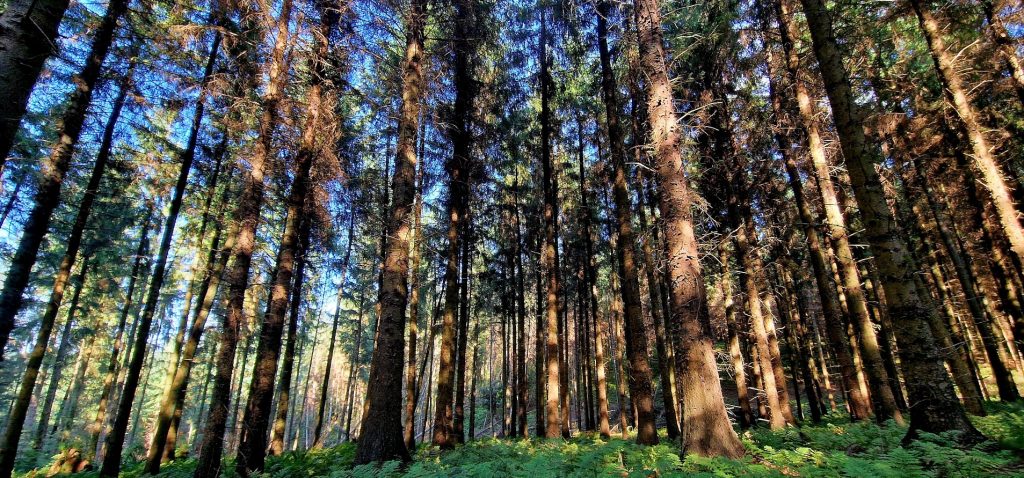Read time: 4-5 minutes

The Rare Gift of True Quiet
True silence is almost extinct.
When was the last time you truly heard nothing?
I recently spent two weeks in the big cities of London and Budapest, and whilst I enjoyed my time there, I left feeling overwhelmed and overstimulated. The noise and constant activity felt jarring compared to the slower rhythms of the countryside.
A few weeks before, I had stumbled upon a place so quiet it felt sacred. No road or air traffic noise, no electricity buzzing, not even the sound of wind or leaves moving. Just the occasional call of a bird I didn’t recognise.
There was no phone signal and no distractions. In that stillness, my mind slowed, my breath deepened. It felt like stepping through a hidden doorway into peace, a thin place where the veil between the world and the soul softens.
It struck me how rare these moments are. And yet, how deeply needed.
The Noise We Don’t Notice (But It Affects Everything)
Modern life is loud, and its getting louder.
According to The Nature Fix by Florence Williams, noise pollution is an invisible health threat. Most urban areas now hum at a constant 60 decibels or more, a level known to trigger stress responses in the body.
Over 1 million healthy life years are lost annually in Western Europe due to noise-related stress, heart disease, poor sleep, and cognitive strain.
Noise doesn’t just harm our bodies, it also dulls our minds. Constant background noise fractures our attention and keeps us in a low-level state of tension, often without us even realising.
When was the last time you noticed noise leaving you drained, distracted, or irritable?
What Happens to the Brain in Silence?
When we step into nature’s quiet, something shifts neurologically.
Studies show that natural silence increases alpha brainwave activity. A state associated with:
- Calm and alertness
- Creative flow
- Deep focus and problem-solving
- Emotional regulation
Alpha waves are our brain’s way of saying “you’re safe now.” In this state, the mind becomes more spacious, more curious. It’s the opposite of decision fatigue and digital overwhelm.
You may have felt it before on a quiet walk, by a still lake, or watching clouds drift slowly across the sky. That feeling of calm alertness? That’s your nervous system finally exhaling.

The Science of Soft Fascination and Mental Restoration
In 1989, psychologists Rachel and Stephen Kaplan introduced the concept of Attention Restoration Theory (ART). They proposed that time in nature, particularly in quiet and visually rich environments, restores our ability to focus.
Why? Because natural landscapes engage our minds in a gentle, effortless way. This is known as “soft fascination.”
This differs from the intense focus needed for work, multitasking, scrolling on your phone or watching TV. These hard fascination activities are highly stimulating and attention grabbing. In nature, attention isn’t demanded, it’s invited. The rustle of leaves, the delicate motion of bugs, the shimmer of light on water: these elements soothe the mind without requiring effort.
Even 20 minutes in a quiet nature can:
- Lower cortisol
- Improve memory
- Increase positive emotions
- Reduce rumination and anxiety
The Vanishing Quiet: How Hard It Is to Find Silence
In the UK, silence is becoming harder to find.
The Campaign to Protect Rural England (CPRE) found that just 21% of England remains truly tranquil and free from major road or air traffic noise. And even national parks are affected. Over 80% of protected areas in the U.S. and Europe have lost natural quiet due to human-generated sounds.
Where is the quietest place you’ve ever been? How did it feel in your body?

The Mental Weight of Constant Noise
Every sound, whether you consciously register it or not, creates micro-responses in your brain:
- Car alarms
- Sirens
- Overheard conversations
- Music in shops
- Phone pings
- Power tools
- Planes overhead
This ongoing assault keeps the nervous system slightly activated, leading to:
- Decision fatigue
- Irritability
- Burnout
- Difficulty resting or sleeping
We were never meant to live like this.
Reclaiming Stillness: What Quiet Places Offer Us
Stepping into a quiet forest or standing still by an empty field isn’t just relaxing, it’s restorative. It returns us to our own rhythms, offering spaciousness where insights and creativity can surface.
A study from Finland (shared in The Nature Fix) found that participants who spent time in forests (without phones or distractions) reported:
- Greater clarity of thought
- Lower stress levels
- Increased joy
- A stronger sense of belonging
Where could you go this week to experience just five minutes of quiet?
Thin Places and Alpha States: My Experience
I’ve been lucky enough to stumble across what I can only describe as thin places. Moments where stillness feels profound, almost spiritual.
That recent quiet place left me changed. I hadn’t realised how loud the background of my mind had become until it softened. With no signal, no sounds, no distractions, I became still.
My senses sharpened, my breath slowed, my thoughts untangled. And in the silence, I heard a new birdsong that felt like a message from the world itself:
You’re here. You’re listening. You’re safe.

Your Invitation to Stillness
You don’t need remote wilderness to reclaim quiet. Here are a few ways to begin:
- Sound Sit: Sit in stillness and close your eyes. Listen for the most distant sound you can hear. Then bring your attention to the nearest one. Just observe..
- Silence Walk: Go for a short walk without music or conversation. Let your ears lead.
- Digital Sabbath: Take an hour, an afternoon, or day with no notifications, podcasts, or screens. Just you and the world.
- Seek quiet places: Make it a practice to explore new quiet places. Early in the morning, midweek, or off-season.
Let your body and mind return to the earth’s slower rhythm
Why Silence Matters
- Noise pollution activates stress and fragments attention.
- Silence increases alpha brainwaves, supporting calm, focus, and creativity.
- Just 20 minutes of quiet nature can lower cortisol, improve memory, and reduce anxiety.
- True silence is rare. But even short moments of intentional quiet restore balance.
Final Thoughts: The Sound of Peace
Reconnection doesn’t have to be dramatic. It begins with something simple:
A breath.
A pause.
A quiet place.
In a world that rewards hustle and noise, stillness is an act of healing. Of remembering. Of returning.
Let the silence touch you. Let it teach you. Let it remind you who you are.